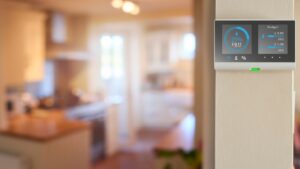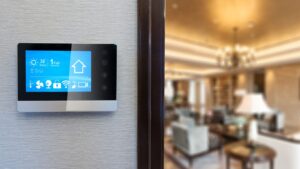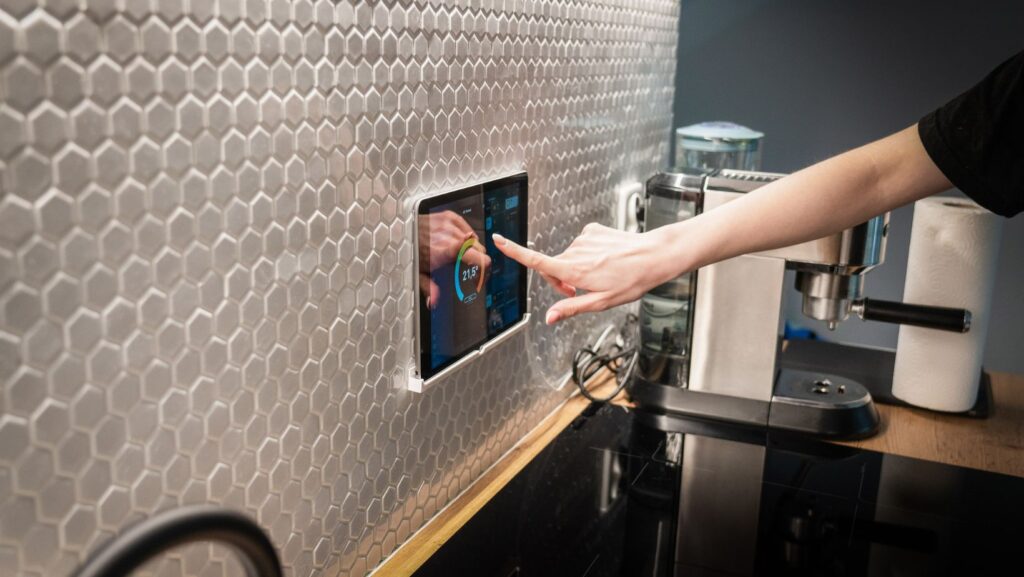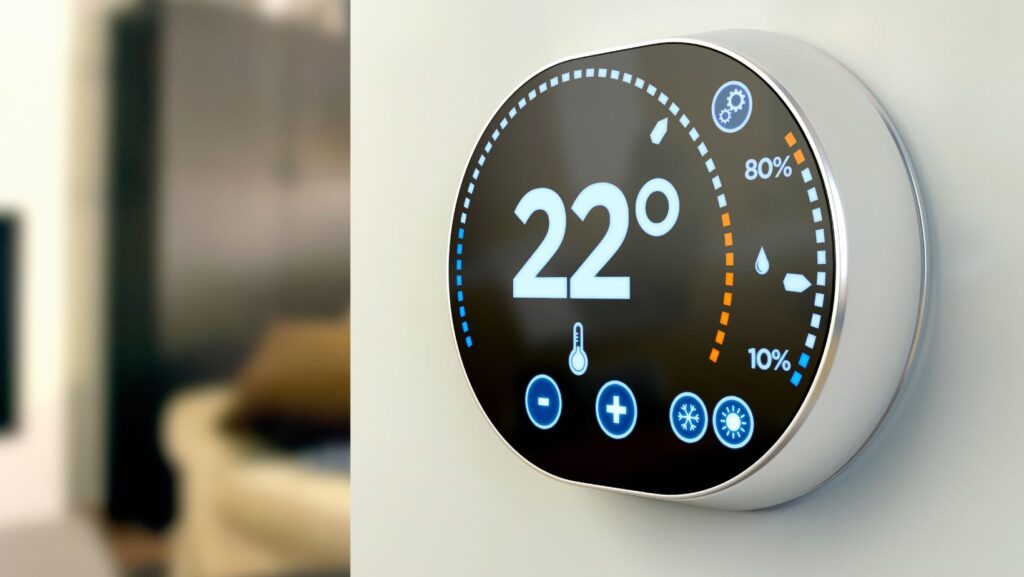Key Takeaways
- Definition and Connectivity: Smart appliances are internet-connected devices that allow remote control and monitoring, enhancing home management through connectivity via Wi-Fi or Bluetooth.
- Energy Efficiency: These appliances optimize energy consumption, potentially reducing utility bills by up to 30%, and promoting a lower carbon footprint.
- Convenience through Automation: Smart appliances offer automation features like scheduling and notifications, making household tasks more manageable and efficient.
- Variety of Devices: Smart appliances include smart refrigerators, ovens, and washers/dryers, each designed to streamline everyday tasks with features like inventory tracking and remote operation.
- Compatibility with Smart Home Systems: Many smart appliances integrate with home automation platforms like Amazon Alexa and Google Assistant, enabling voice commands and seamless device interaction.
- Benefits of Integration: The integration of smart appliances fosters a more streamlined, enjoyable home environment, signifying a shift towards smarter living solutions.
Smart appliances are revolutionizing the way people manage their homes. These innovative devices connect to the internet, allowing users to control and monitor them from anywhere. With features like energy efficiency, automation, and remote access, smart appliances are not just a convenience; they’re becoming essential for modern living.
As technology continues to advance, the integration of smart appliances into daily life is transforming household routines. From refrigerators that track food inventory to washing machines that optimize cycles based on energy usage, these gadgets are designed to simplify tasks and enhance efficiency. Embracing smart technology can lead to a more streamlined and enjoyable home environment, making life easier for everyone.
Smart Appliances
 Smart appliances connect to the internet, allowing users to control and monitor their functions remotely. These devices encompass various categories, including kitchen, laundry, and home comfort appliances.
Smart appliances connect to the internet, allowing users to control and monitor their functions remotely. These devices encompass various categories, including kitchen, laundry, and home comfort appliances.
- Connectivity: Many smart appliances connect via Wi-Fi or Bluetooth, enabling seamless interaction through mobile apps or voice commands.
- Energy Efficiency: Smart technology allows appliances to optimize energy consumption, reducing utility bills. For instance, smart thermostats sense occupancy patterns and adjust heating or cooling accordingly.
- Automation: Scheduling and automation features enhance convenience. Users can program devices to operate at specific times, such as running washing machines during off-peak hours.
- Monitoring Capabilities: Sensors in smart appliances provide real-time data. Refrigerators with internal cameras can alert users when items are about to expire.
- Smart Refrigerators: Capable of tracking inventory, suggesting meals, and even connecting to grocery delivery services.
- Smart Ovens: Allow remote preheating and recipe guidance via integrated displays or app connectivity.
- Smart Washers and Dryers: Optimize wash times, track cycle progress, and offer alerts when cycles complete.
Smart appliances are key in modern homes, enhancing efficiency, convenience, and control over household management. Their integration into daily life signifies a shift towards smarter living environments.
Benefits of Smart Appliances
 Smart appliances offer numerous advantages that enhance home management, contributing to efficient and convenient living environments.
Smart appliances offer numerous advantages that enhance home management, contributing to efficient and convenient living environments.
Energy efficiency stands out as a significant benefit of smart appliances. Smart devices, such as thermostats and refrigerators, utilize advanced technology to optimize energy usage. For instance, smart thermostats adjust heating and cooling based on real-time occupancy data, reducing unnecessary energy consumption. This capability can lead to savings of up to 30% on heating and cooling costs. Additionally, smart appliances can identify energy-hogging patterns, allowing users to adjust settings or switch to energy-saving modes. Overall, the integration of energy-efficient smart appliances translates to lower utility bills and a reduced carbon footprint.
Convenience and Automation
Convenience and automation rank high among the benefits of smart appliances. These devices facilitate remote monitoring and control through smartphone apps or voice commands, allowing users to manage household tasks effortlessly. Examples include smart ovens that enable users to preheat remotely and washing machines that allow scheduling during off-peak hours. Furthermore, automation features like scheduling and notifications streamline daily routines. Users receive alerts when laundry cycles finish or when food inventory reaches critical levels, enabling proactive management without constant oversight. The overall enhancement in daily convenience elevates the smart appliance experience, transforming mundane chores into manageable tasks.
Types of Smart Appliances
Smart appliances come in various types, each designed to improve efficiency and convenience in the home. These devices enhance everyday tasks through connectivity, automation, and monitoring features.
Smart Refrigerators
Smart refrigerators optimize food storage and management. They feature internal cameras that track food inventory, enabling users to check supplies remotely via mobile apps. Notifications alert users about expiring items, promoting reduced food waste. Some models offer recipe suggestions based on available ingredients, simplifying meal planning.
Smart Ovens and Ranges
Smart ovens and ranges provide remote control capabilities for more precise cooking. Users can preheat ovens from their smartphones or set timers while away from the kitchen. These appliances often include features like temperature probes that ensure meals are cooked to perfection. Integration with recipe apps allows for step-by-step cooking guidance, enhancing the culinary experience.
Smart Washers and Dryers
Smart washers and dryers streamline laundry tasks through automation and monitoring. Users can schedule wash cycles and receive notifications when loads are complete or require attention. Some models utilize sensors to optimize wash times and detergent usage, conserving water and energy. Remote access allows users to manage laundry from anywhere, increasing convenience and efficiency in home management.
Key Features to Consider
Smart appliances offer a variety of innovative features that enhance their utility in modern homes. Key aspects include connectivity options and compatibility with existing smart home systems.
Connectivity Options
Connectivity options determine how smart appliances interact with users and other devices. Most smart appliances utilize Wi-Fi or Bluetooth technology for seamless communication. Wi-Fi enables robust remote control via mobile apps, allowing users to manage settings and receive real-time updates from anywhere. Bluetooth provides immediate interaction within a limited range, often used for direct connections between appliances and smartphones. Examples of connectivity include smart refrigerators sending notifications about food status to users’ phones and smart ovens allowing remote adjustment of cooking times.
Compatibility with Smart Home Systems
Compatibility with smart home systems significantly enhances a smart appliance’s functionality. Many smart appliances integrate with platforms like Amazon Alexa, Google Assistant, or Apple HomeKit. This integration allows users to control devices using voice commands or central smart home hubs. For instance, a smart thermostat can adjust the temperature based on commands from a voice-activated assistant. Additionally, appliances that work with smart home systems facilitate automation, enabling users to create custom routines, such as preheating ovens when arriving home. Compatibility fosters a more cohesive and efficient home environment, making operation easier and more intuitive for users.
Energy Efficiency
Smart appliances are revolutionizing how households operate by combining technology with everyday tasks. Their ability to connect and communicate offers unmatched convenience and efficiency. As these devices continue to evolve they’re not just enhancing home management but also promoting energy savings and sustainability.
With features like remote monitoring and automation, users can enjoy a more streamlined lifestyle. The integration of smart technology in various appliance categories ensures that modern living is not only easier but also smarter. As homeowners embrace these innovations they’ll find that smart appliances are no longer just a luxury but a necessity for a more efficient home environment.


